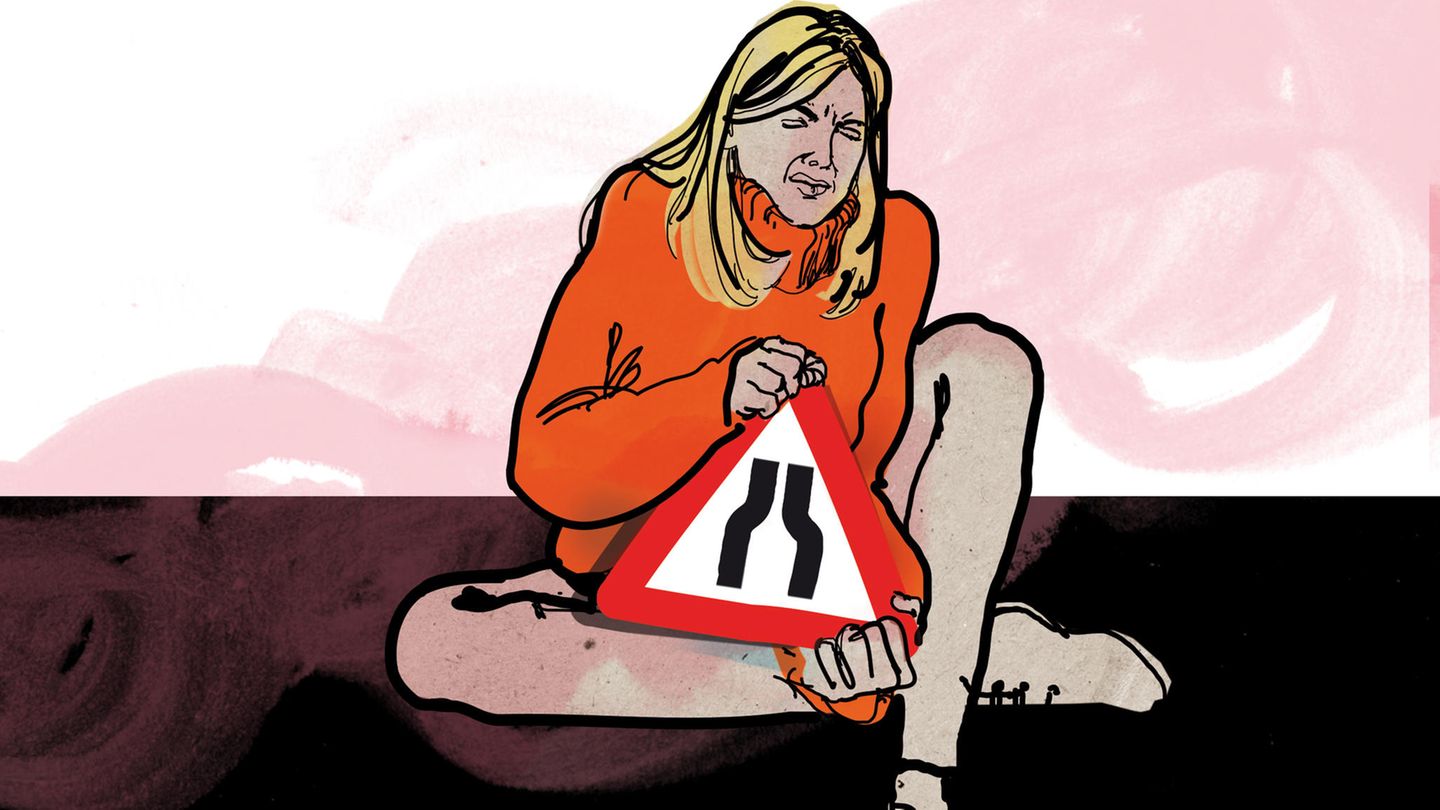In a review of the main challenges that the Government of Javier Milei Until the end of his first year in office, the economist Jorge Carrera -former second vice president of the Central Bank-, emphatically warns about the recession which deepened starting in December and by unemployment as problems that are gaining ground over the impact of inflation. He assures that the difficulties in dollarizing are current, although he is concerned that the ruling party will apply the monetary regime as a last resort to regain popularity at the end of 2024, in view of the legislative elections of 2025. In dialogue with Ámbito, the professional received in The University of La Plata also referred to the month of July and the performance of the BCRA, which could be significantly affected.
Jorge Carrera: The drop in inflation is the only thing they can show as a positive element, but this very rapid decline is going to find a floor, a kind of landing. It would be naive to think that from 5%, 6%, this inflation will drop to 2% or 3% monthly. At these levels, the issues of inertia are already very important, plus repressed inflation, which is all there is to fares, transportation, fuel and so on. The calculations that we do add between 14 and 18 points that at some point will have to be incorporated into the monthly. At the same time, this decrease in inflation was focused on using economic policy instruments that have been very strong: devaluation, reduction in spending, stepping on payments and liquefaction of pesos. Added to these instruments is the most powerful of all: recession, understood as “the income policy of a libertarian government.” They generated such a strong recession that both workers discussing salaries and those setting prices have greatly moderated traditional behavior regarding inflation.
JC: This recession is perhaps the strongest we are going to have since 2001, and it will be the main protagonist of the second half of the year. I believe that, contrary to what the Government thinks, it will be extremely difficult to achieve a significant recovery of the economy. It is likely that you will begin to have a drop in the level of activity less than the current one and that some indicators will show growth. But that doesn’t mean you’re going to get out of the recession.
Q: What does it mean, then, to get out of the recession?
JC: That we return to having a level of activity that is similar to when this recession began, which actually begins in 2022. What are the drivers that will drive you to reach next year at least with the GDP of mid from 2023? Is the salary recovery enough for you to return to the December level of activity? It is possible that your salary adjusted for inflation will once again be the equivalent of what you earned in December 2023, but you are not going to buy the same thing that you bought back then, because now there is a fixed consumption part that, according to calculations by the IIEP of The UBA went from occupying 6% to 20% of income.
Q: What is the factor that today socially contains the consequences that are being seen due to the application of the economic program and, on the contrary, what do you think can cause this containment to collapse?
JC: I believe that the recession is wreaking havoc, it is settling into the center of the debate. Unlike inflation, which is something that harms us all, unemployment is like an individual misfortune that happens to those who did it and those who did not, are praying to God to prevent it from happening to them. We already learned this in convertibility. We had three years with unemployment growing to exorbitant levels and people still chose convertibility out of curiosity to know what was behind it. There is a moment when people will understand that inflation was a huge problem because it eroded their income, but they had a certain income. Now you will find that there is a part of the population that is at risk of not having them. In that sense, it is also true that on the opposition side, no one wants to be the one to say I am the first to face this, everyone plays their game and the governors do what they can to save themselves.
Q: That the President says that his entire Cabinet is under review, in a context of challenges from now on, is it positive? Because it gives the feeling that a change may come, or it generates distrust, because the Government is not finding its way…
JC: The truth is that the Government is very inefficient. They don’t cover spaces, there are no signatures, officials spend too much time trying to see where the saw is going to come from. In that context, I see sources of tension in Sturzenegger’s entry because it is not the same as Caputo. I think what Milei is most interested in is the self-perception he has as a beacon of the global extreme right, rather than having to go around getting involved in the problems generated by managing a government structure in times of crisis.
Q.: When things do not seem to go as expected, Milei takes up the promise of dollarization and assures that he is getting closer to fulfilling it. From December to now, have the conditions for applying it improved?
JC: Dollarization gives the sensation of finding a path towards something positive that had also been aspirational and concrete. Obviously, I believe that he knew very well that it was impossible to dollarize, as he had promised. It is also true that one of Caputo’s great unfulfilled promises was the famous US$15 billion that was very easy to obtain. Incredibly, under that confidence they neglected what they had, which was the possibility of expanding the SWAP with China for an additional amount, a procedure that was expected. But it is also true that they have improved conditions in relation to the amount of pesos in the economy, due to the phenomenal liquefaction process. Milei has creatively managed to escape dollarization by inventing something different, which is currency competition. That has many technical complexities and is not as easy as they are selling it. What I fear is that if the Government sees itself in conditions of strong deterioration at the end of the year, close to the next election year, it may attempt some coup d’état, such as almost total lifting of the stocks, a large devaluation and then attempt to dollarize.
Q: Are all these limitations and challenges also detected by the market?
JC: The market celebrates the fiscal surplus and there is still a majority that chooses to believe that the Bases Law will be approved because it guarantees greater income. How much more income? We estimate 0.5% to 0.7% of GDP in additional income, which is not enough to compensate for the extraordinary cuts they made and especially in a context of recession, although the market chooses to believe in the V as recovery. At the same time, Argentina has to pay US$18 billion in public sector maturities between 2024 and 2025. Is there enough fuel for the Country Risk to go down, so that Argentina can recover in 2025 and obtain US$3,000 or US$4,000 million in the market? It seems to me that, on a fine line, there are agents who are beginning to see some yellow lights come on.
Q: Another yellow light seems to be given by the exchange rate. There is consensus among economists from across the ideological spectrum that there is an exchange rate delay. But the Government insists that it is not going to devalue, but rather generate competitiveness by lowering taxes, capital costs, country risk and accumulation of reserves. Is this proposal convincing?
JC: I don’t think so, it’s not quite convincing. One problem they will face in the second half of the year is that harvest dollar settlements have been reluctant, because they believe that the exchange rate they are receiving is not sufficient. The exchange rate lags no matter how much inflation decreases. Since July there will be a reduction in the accumulation of reserves by the Central Bank. The issue, which we still do not know how the Government is going to resolve, is that this month the Blend dollar expires, 80%-20%. The IMF does not like this system. Meanwhile, for the countryside, profitability is being quite complex, especially in the sectors far from the core area, which are the most productive. That is bad for future planting. This, plus the possibility of a better exchange rate in July, delays the currency settlement.
Q: Do you think the market put a question mark on the Central Bank’s rate cut policy? Anyway, is there a non-traumatic way to heal your balance?
JC: The rate cut policy is a very original policy, it is worth studying it and not ignoring it. It discourages the generation of endogenous issuance due to remunerated liabilities. Discourages the “carry trade.” In other words, we see a Caputo who learned a lot from the mistakes made by Sturzenegger in Macri’s previous administration. On the other hand, you greatly penalize the simplest saver, the one who saves in fixed terms. I believe that the elimination of paid liabilities is more of an obsession of the president than one of the most important priorities, because I don’t know if that is what is going to cause inflation to have a convergent path, rather it has to do with the preparation of the ground for coin competition. At the same time, you are transferring to the fiscal sector what was previously debt to the Central Bank, which generates a very high level of renewals of the Lecap. We have bad experiences of this, of burdening banks excessively with bonuses. It is enough to go back to 2019, when people similar to those who are now ended up reprofiling the debt.
Source: Ambito




